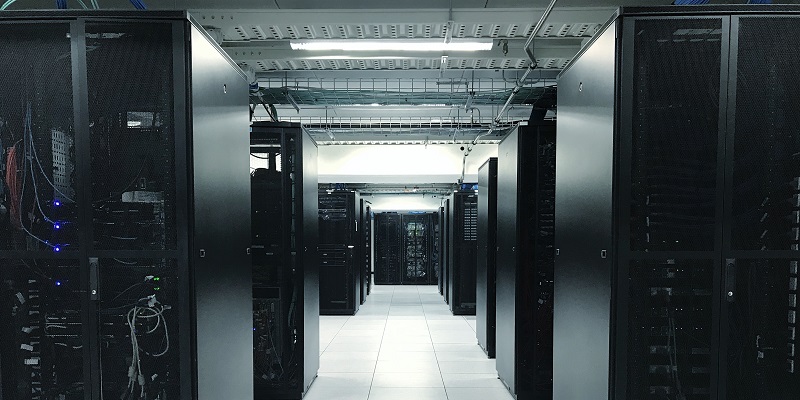HPC (High-Performance Computing) data centers have long been at the forefront of technological advancements, powering cutting-edge research, simulations, and data analysis. However, as the demand for computational power continues to rise, so does the energy consumption of these facilities. To address this challenge, integrating green energy sources and leveraging AI has emerged as a key strategy for transforming HPC data centers into sustainable and environmentally-friendly hubs.
The Potential of Green Energy in Transforming HPC Data Centers
Green energy, encompassing renewable sources like solar, wind, and hydropower, holds immense potential for reshaping HPC data centers. Its scalability and reliability make it a feasible alternative to the traditional fossil fuel-based power infrastructure. By harnessing abundant and clean energy sources, HPC data centers can operate with reduced environmental impact while meeting the increasing computational demands.
The Environmental Benefits of Using Green Energy in HPC
The adoption of green energy in HPC can significantly reduce carbon emissions, which contribute to climate change. By transitioning to renewable energy sources, HPC data centers can decrease their reliance on non-renewable resources and mitigate their ecological footprint. This aligns with global efforts to combat climate change and promotes a greener and more sustainable future.
The Energy Efficiency and Cost Savings of Green Energy Integration in HPC
Integrating green energy sources into HPC data centers brings about noticeable improvements in energy efficiency. By utilizing technologies like solar panels, wind turbines, and hydroelectric power, these centers can generate power on site, reducing the need for electricity from the grid. This translates into cost savings and reduced operational expenses, making HPC more economically viable in the long run.
The Innovative Opportunities of Combining AI and HPC
The combination of AI and HPC unlocks new possibilities for innovation across various domains. In finance, AI-powered algorithms can analyze large datasets for risk assessment and predictive modeling. In industrial design, AI can optimize manufacturing processes and simulate complex scenarios. In scientific research, AI can expedite data analysis and assist in discovering patterns and correlations. Moreover, in energy exploration, AI algorithms can enhance seismic imaging and optimize drilling operations. The convergence of AI and HPC facilitates breakthroughs that drive technological progress and societal advancement.
The Role of Green Energy in Providing Sustainable Power for HPC Data Centers
Green energy sources, such as solar and wind, provide a sustainable and renewable power supply for HPC data centers. By harnessing these sources, data centers can reduce their reliance on fossil fuels and minimize their carbon footprint. This not only contributes to a cleaner and healthier environment but also ensures a long-term and reliable power supply for uninterrupted operations.
Dynamic Energy Consumption and Improved Energy Efficiency through AI in High-Performance Computing (HPC)
Leveraging AI, HPC data centers can dynamically adjust their energy consumption based on workload demands. AI algorithms can optimize power distribution, cooling systems, and resource allocation, resulting in reduced waste and improved overall energy efficiency. With AI’s ability to analyze and predict data patterns, HPC data centers can streamline their energy usage, making them more sustainable and cost-effective.
The Benefits of Reducing Resource Consumption in HPC for Sustainability and Innovation
Initiatives that focus on reducing excessive resource consumption offer quick payback periods and low-risk opportunities for HPC data centers. By implementing resource-efficient practices such as improving server utilization, efficient data storage and retrieval, and optimizing network bandwidth, HPC centers can enhance sustainability strategies and drive further innovation. These practices not only reduce energy consumption but also promote a more efficient use of resources, creating a win-win situation for both the environment and the industry.
Long-Term Cost Savings through Transitioning to Renewable Energy Sources in HPC
Transitioning to renewable energy sources eliminates the dependency on costly fossil fuels in HPC operations. While initial investments may be required for infrastructure setup, the long-term cost savings are substantial. Renewable energy sources have lower operating costs and are not subject to the price fluctuations that often affect fossil fuels. By embracing green energy, HPC data centers can achieve greater financial stability, reduce their operational expenses, and drive cost-efficient computing.
The importance of adhering to ethical standards in HPC for sustainability and societal well-being
In addition to technological advancements, HPC data centers must adhere to ethical standards to establish trust, maintain integrity, and create a foundation for sustainable growth. Ethical considerations include data privacy, responsible AI deployment, and transparency in algorithms and decision-making processes. By integrating ethical practices into their operations, HPC data centers can contribute to societal well-being while fostering innovation and sustainable growth.
The Future of HPC Data Centers at the Intersection of Green Energy and AI Synergy
The future of HPC data centers lies at the intersection of green energy and AI synergy. By leveraging the power of renewable energy sources and harnessing the capabilities of AI, HPC data centers can revolutionize the industry. This transformative path not only ensures a sustainable and environmentally friendly approach to computing but also unlocks new realms of innovation, enabling researchers and scientists to tackle complex challenges and make breakthrough discoveries in an efficient and impactful manner.
As the demand for computational power continues to grow, it is crucial for HPC data centers to embrace sustainable practices. The integration of green energy and AI offers a transformative path towards innovation and sustainability. By reducing carbon emissions, improving energy efficiency, and driving cost savings, HPC data centers can pave the way for a greener future. Moreover, by adhering to ethical standards, these centers can foster societal well-being and trust, ensuring long-term sustainable growth. The convergence of green energy and AI in HPC data centers holds immense potential for transforming industries and driving positive change for both the environment and society as a whole.

